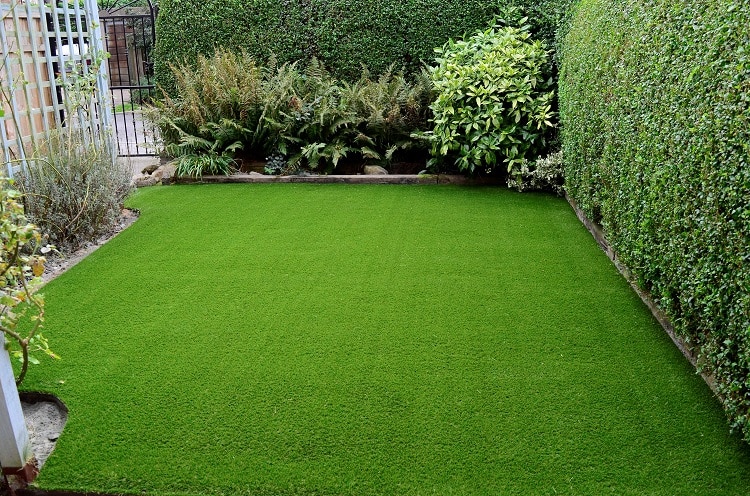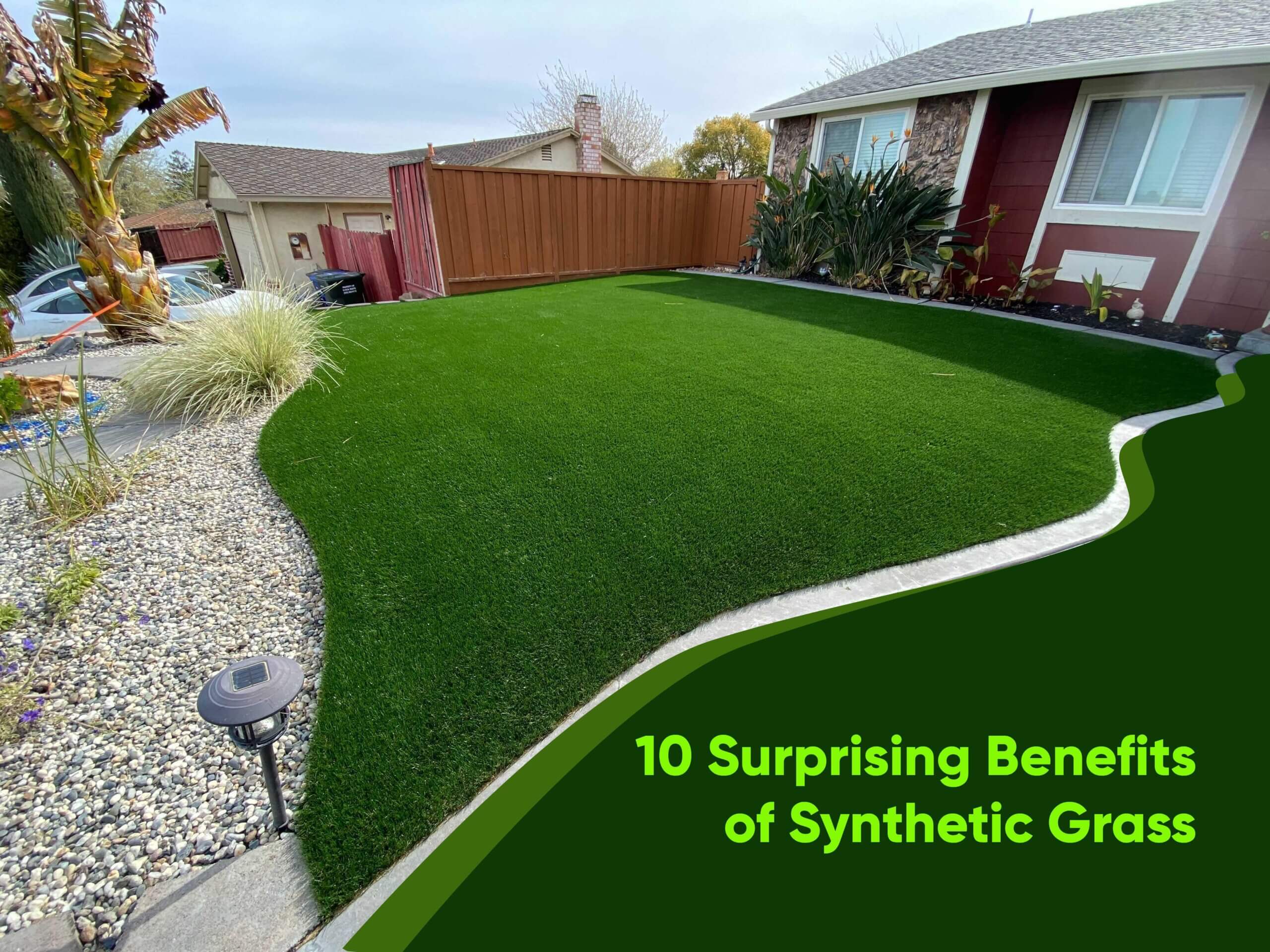Highly-Rated Turf Installation Canoga Park Companies for Homeowners
Highly-Rated Turf Installation Canoga Park Companies for Homeowners
Blog Article
Top Factors to Take Into Consideration Artificial Grass for a Lavish and Low-Maintenance Lawn
As home owners significantly look for sustainable solutions for outside spaces, artificial lawn presents an enticing option to conventional yards. The advantages expand past plain aesthetics and sustainability; discovering the complex ramifications of synthetic grass reveals an extensive strategy to yard administration that qualities deeper consideration.
Year-Round Greenery
One of the most considerable benefits of artificial lawn is its capacity to provide year-round plant, no matter climate conditions. Home owners commonly deal with difficulties in preserving a vibrant yard as a result of seasonal modifications, dry spells, or heavy rainfall. Fabricated yard eliminates these worries, ensuring a constantly lavish look throughout the year.
This synthetic alternative is crafted to withstand varied climate circumstances, from scorching summer heat to cold winter season temperature levels. Unlike natural turf, which may brownish or become uneven throughout extreme problems, synthetic grass maintains its vibrant color and structure, enhancing the visual allure of any kind of landscape.
In addition, synthetic turf is resistant to pests and diseases that usually influence natural grass. This strength adds to its enduring elegance, as there is no demand for chemical therapies or plant foods that can be unsafe to the environment. Homeowners can enjoy the visual benefits of a well-kept yard without the cyclical difficulties posed by all-natural turf care.
Lowered Maintenance Initiatives
Artificial turf considerably reduces upkeep efforts, permitting property owners to delight in an excellent yard without the lengthy jobs connected with natural turf care. Among the most significant benefits of artificial turf is the elimination of normal mowing. Without any demand for a lawnmower, house owners save both time and the cost of upkeep connected with this tools.

Cleansing man-made lawn is straightforward; a basic rinse with a pipe or the periodic brushing to get rid of debris is typically enough - backyard artificial grass. This ease of treatment enables house owners to spend even more time appreciating their outside rooms as opposed to struggling over them. In recap, the minimized maintenance initiatives related to synthetic grass make it an enticing option for those seeking an attractive, hassle-free lawn
Water Preservation Benefits
The significant reduction in upkeep efforts connected with synthetic yard encompasses water conservation, making it an eco-friendly option for house owners. Traditional yards call for considerable amounts of water to stay lively and lavish, commonly resulting in excessive water use, particularly in deserts. On the other hand, artificial yard removes the requirement for normal watering, dramatically reducing the general water consumption in your lawn.
By opting for artificial lawn, home owners can preserve hundreds of gallons of water each year. This shift not just benefits private houses but also adds to more comprehensive ecological initiatives targeted at decreasing water waste. In locations experiencing water deficiency, the fostering of fabricated turf can play a significant duty in reducing the effects of drought and making certain that useful water sources are used more successfully.
Moreover, the setup of man-made grass can help lower municipal water demand, profiting the community as a whole. With growing awareness of ecological concerns, choosing man-made yard functions as an aggressive step towards sustainable landscape design, assisting to maintain all-natural water sources while preserving a visually pleasing outside room (backyard look at these guys artificial grass). In summary, artificial grass offers an engaging remedy for water conservation, lining up ecological responsibility with contemporary landscaping demands

Insect and Allergy Decrease
A significant advantage of setting up synthetic turf is its capacity to decrease pests and allergens in exterior spaces. Standard grass yards commonly function as breeding premises for pests such as mosquitoes, ticks, and ants, which read this can create discomfort and wellness risks for family members and pet dogs. On the other hand, fabricated grass gets rid of the natural product that brings in these pests, thereby significantly reducing their populaces in your backyard.
Furthermore, natural yard can nurture mold, pollen, and various other irritants, which can activate allergies and respiratory problems for sensitive people. Artificial grass supplies a cleaner environment, decreasing the possibility for allergenic responses. Unlike natural turf, fabricated grass does not create pollen, making it an excellent alternative for allergic reaction sufferers seeking to enjoy their exterior areas without the threat of flare-ups.
Additionally, the lack of dirt in synthetic grass implies there is much less dirt and dust, more lessening air-borne irritants. This low-maintenance choice not just improves the aesthetic charm of your backyard yet likewise advertises a healthier outdoor environment, permitting households to enjoy their yards without the consistent fear of parasites and irritants. Therefore, artificial yard is a tactical selection for those focusing on comfort and health and wellness in their outdoor home.
Long-Term Expense Financial Savings
Spending in synthetic lawn can lead to substantial lasting price financial savings for house owners. Fabricated yard eliminates the need for normal lawn upkeep expenditures, such as mowing, fertilizing, and watering.
Furthermore, the longevity of synthetic turf additionally enhances its cost-effectiveness. The majority of high-grade artificial lawn items can last 15 to 25 years with marginal maintenance, minimizing the need for substitute or considerable repair work. On the other hand, natural turf might require constant reseeding and routine treatment, which can rapidly accumulate in costs.
Utility cost savings are another vital aspect. Home owners can anticipate to see lower water costs, as artificial lawn YOURURL.com does not call for irrigation. In addition, the decrease in grass care solutions can maximize beneficial time and resources, enabling house owners to allocate their budgets elsewhere.
Verdict
In recap, synthetic yard offers various benefits for homeowners looking for a low-maintenance and dynamic landscape. Ultimately, the long-term expense financial savings linked with fabricated lawn solidify its standing as a sustainable and functional service for improving outside spaces.
Artificial yard significantly minimizes upkeep initiatives, permitting property owners to appreciate a beautiful lawn without the time-consuming tasks associated with natural turf treatment.The substantial decrease in maintenance initiatives connected with fabricated grass prolongs to water conservation, making it an ecologically pleasant alternative for house owners. In comparison, artificial lawn gets rid of the demand for routine watering, significantly minimizing the overall water intake in your lawn.
In locations experiencing water shortage, the adoption of fabricated turf can play a significant duty in alleviating the impacts of drought and making sure that important water sources are utilized much more effectively.
With growing understanding of environmental concerns, selecting artificial lawn offers as a positive action towards sustainable landscaping, assisting to protect natural water resources while maintaining a visually pleasing exterior room.
Report this page